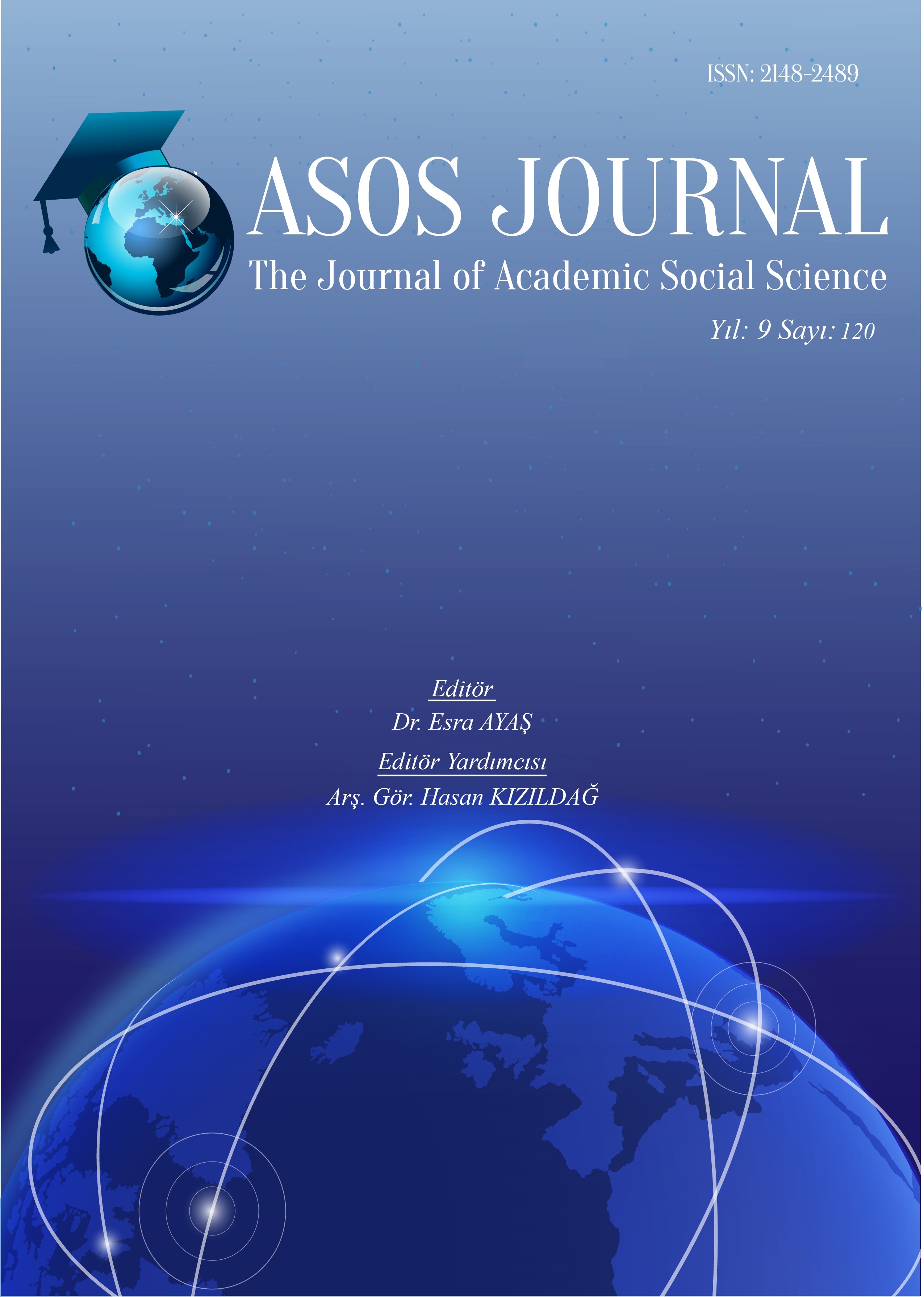Author :
Abstract
Amaç: Araştırma, kriz yönetimi ve afetlerle mücadelede hazırlık, müdahale ve rehabilitasyon aşamalarında görev alacak olan sağlık çalışanlarının hastane afet ve acil durum planı bilgi düzeyinin niteliksel olarak değerlendirilmesi amacı ile gerçekleştirilmiştir.
Yöntem: Araştırma, 15.10.2015- 15.12.2015 tarihleri arasında tanımlayıcı nitelikte yapılmıştır. Araştırmanın evrenini Eskişehir İlinde sağlık hizmeti sunan 12 adet kamu/özel sağlık kurumunda (7 kamu+5 özel) görev yapan sağlık profesyonelleri ve personeller, örneklemi ise bunların arasından çalışmaya katılmayı gönüllü olarak kabul eden 2.672 katılımcı oluşturdu.
Bulgular: Katılımcıların afet ve acil durum eğitimine katılma durumlarına bakıldığında, %72,75’inin görev yaptığı hastanede afet ve acil durumlarla ilgili hizmet içi eğitime katıldığı, eğitime katılanların sırasıyla en çok, yangın (%61,56), deprem (%25,00) ve temel afet bilinci eğitimlerine (%19,12) katıldığı, HAP eğitimi alanların %13,10 olduğu görülmüştür. Eğitime katılanların %87,40’ı katıldıkları eğitimi “ çok faydalı-faydalı” olarak değerlendirmiştir. Katılımcıların çalıştıkları hastaneye ait Hastane Afet ve Acil Durum Planı (HAP) ile ilgili bilgi düzeyi sorgulandığında, %62’si hastanenin HAP planı olmadığını ifade etmiştir.
Sonuç: Hastane Afet ve Acil Durum Planı bilgi düzeyi düşük düzeydedir. HAP ilgili eğitimler düzenlenirken eğitimlerin soyut düzeyde kalmasının önüne geçilmelidir. Afet ve Acil Durum ile ilgili yapılacak eğitimleri yangın eğitimi kısırdöngüsünden çıkaracak tedbirlerin alınması, eğitim programlarının bu doğrultuda yeniden gözden geçirilmesi, eğitmenlerin de bu konudaki farkındalığının artırılması gerekmektedir.
Keywords
Abstract
Aim: The research was carried out with the aim of qualitatively evaluating the hospital disaster and emergency plan knowledge level of health workers who will take part in the preparation, response and rehabilitation stages in crisis management and disaster relief.
Method: The research was conducted descriptively between the dates of 15.10.2015 and 15.12.2015. The population of the research consisted of health professionals and personnel working in 12 public/private health institutions (7 public + 5 private) providing health services in Eskişehir, and the sample consisted of 2,672 participants who voluntarily accepted to participate in the study.
Results: Considering the participants' participation in disaster and emergency training, 72.75% of them attended in-service training about disasters and emergencies in the hospital where they worked, and the highest number of participants were fire (61.56%), earthquake (25%, 00) and basic disaster awareness training (19.12%), and 13.10% of those who received HAP training. 87.40% of the participants evaluated the training they attended as “very useful-useful”. When the knowledge level of the participants about the Hospital Disaster and Emergency Plan (HAP) of the hospital they work was questioned, 62% of them stated that the hospital did not have a HAP plan.
Conclusion: Hospital Disaster and Emergency Plan knowledge level is low. While organizing HAP-related trainings, it should be prevented that trainings remain at an abstract level. It is necessary to take measures to remove the trainings on Disaster and Emergency from the vicious circle of fire education, to review the training programs accordingly, and to increase the awareness of the trainers on this issue.
Keywords
- Abd elazeem, H., Adam, S., & Mohamed, G. (2011). Awareness of hospital internal disaster management plan among health team members in a university hospital. Life Science Journal-Acta Zhengzhou University Overseas Edition, 8(2), 42-52.
- Afet, B., & Başkanlığı, A. D. Y. (2014). Açıklamalı Afet Terimleri Sözlüğü. In: Ankara.
- Afet, B., & Başkanlığı, A. D. Y. (2018). Türkiye’de Doğa Kaynaklı Afet Olayları Raporu In: Ankara.
- Bartley, B., Fisher, J., & Stella, J. (2007). Video of a disaster drill is effective in educating registrars on the hospital disaster plan. Emergency Medicine Australasia, 19(1), 39-44.
- Çakmak, H., Er, R. A., Öz, Y. C., & Aker, A. T. (2010). Kocaeli ili 112 acil yardım birimlerinde çalışan personelin marmara depreminden etkilenme ve olası afetlere hazırlık durumlarının saptanması. Journal of Academic Emergency Medicine/Akademik Acil Tip Olgu Sunumlari Dergisi, 9(2).
- Çelikli, S., & Karababa, A. (2012). Hastane afet yönetimi ekibine verilen eğitimin değerlendirilmesi; ege üniversitesi tıp fakültesi hastanesi Örneği. Harran Üniversitesi Tıp Fakültesi Dergisi, 9(1), 20-27.
- Global Health Security Index. (2019). https://www.ghsindex.org/country/turkey/, (Erişim Tarihi: 30.04.2020).
- Gülhan, Ş., & Ersoy, G. (2017). Hastane afet ekibinin afete hazırlık konusundaki bilgi düzeylerinin değerlendirilmesi. Gümüşhane Üniversitesi Sağlık Bilimleri Dergisi, 6(4), 122-130.
- İytemür, A., & Yeşil, S. T. (2020). Bir üniversite hastanesinde çalışan hemşirelerin hastane afet ve acil durum planları ile ilgili görüşlerinin incelenmesi. Hacettepe Üniversitesi Hemşirelik Fakültesi Dergisi, 7(2), 138-148.
- Türk Tabibler Birliği. (2009). Hekimlerin çalıştıkları yataklı tedavi kurumlarının olağandışı durumlara yönelik hazırlıklılığını değerlendirmeleri araştırması. Ankara: Türk Tabipleri Birliği Yayınları.
- Yurdakul, A., Piroğlu, F., & Nilgün, O. (2013). Kocaeli derince eğitim ve araştırma hastanesi mevcut afet planı çerçevesinde, çalışanların afete hazırlığının değerlendirilmesi. Mehmet Akif Ersoy University Journal of Health Sciences Institute, 1(2), 75-85.
- IFRC (International Federation of Red Cross and Red Cresent Societies).(2018). World Disaster Report, Viyana, 2018
- HAP Yönetmeliği http://www.resmigazete.gov.tr/eskiler /2015/03/20150320-13.htm (Erişim tarihi: 18.10.2015)
- İL-SAP Yönergesi http://www.acilafet.gov.tr/wpcontent/uploads/2015/09/İl-SağlıkAfet-ve- Acil-Durum-PlanlamasıUygulama-Yönergesi-İL-SAP.pdf (Erişim tarihi: 18.10.2015)
- TAMP–AFAD.https://www.afad.gov.tr/UserFiles/File/Planlar/Afet_Mud_Pl_ResmiG%2020 122013.pdf (Erişim tarihi: 18.10.2015)





